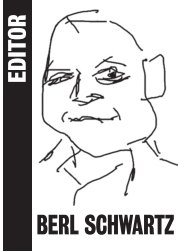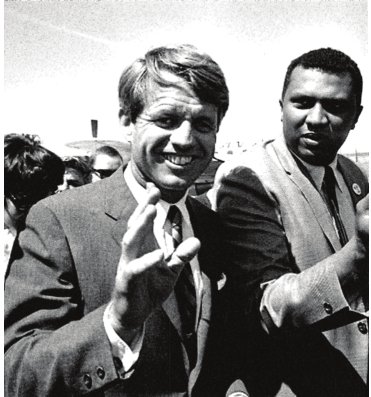 The thoughts of many Americans turned back 50 years this week to Robert F. Kennedy. For some, those thoughts are personal.
The thoughts of many Americans turned back 50 years this week to Robert F. Kennedy. For some, those thoughts are personal.
I was a junior in college when I shared a podium with RFK for a speech I helped arrange in April 1968 at the University of Pennsylvania as part of his campaign for the Democratic presidential nomination. When he was assassinated two months later, I attended the funeral and burial as the sole representative of the college press.
My memories include watching his brother, Ted, his voice breaking as he delivered a eulogy at St. Patrick’s Cathedral in Manhattan; shaking hands with members of the family as they moved through the funeral train that carried Kennedy’s body to Washington; standing after dark on the hill in Arlington Cemetery where he was to buried as the cortege moved slowly across the Arlington Bridge and wound its way up to us; and, after the short graveside service, seeing family members toss dirt onto his coffin before it was lowered into the ground.
(I will discuss my experiences at LCC at 7 tonight in the Grand River Room of the Gannon Building. The public is invited.)
Joel Ferguson is another local resident with personal memories. Ferguson, then a 28-year-old Lansing City Councilman, credits his helping Kennedy in the Michigan Democratic primary with advancing his own political career nationally, culminating with being elected to serve on the Democratic National Committee.
Kennedy backers selected Ferguson to be his statewide campaign manager when RFK belatedly announced his presidential candidacy in March 2018, after Sen. Eugene McCarthy nearly upset incumbent Lyndon Johnson in the New Hampshire primary.
Less than a month later, Johnson had dropped out and Vice President Hubert Humphrey announced his candidacy.
The campaign tasked Ferguson with arranging a campaign luncheon speech on April 11 at the old Jack Tar Hotel (now the Romney Building) in downtown Lansing — with three days’ notice.
“I oversold it by 50 percent, so it was just a mob scene there.” Recalled Ferguson.
He accompanied Kennedy on the drive downtown along with state party chairman Sander Levin and Gov. G. Mennen Williams. Kennedy spent the drive talking to the two of them. But as they reached their destination, he said Kennedy asked him, “’Who are you?’ “I said, ‘I’m your guy in mid-Michigan.’ “’He said, ‘How am I doing?’ “I said, ‘Well, to tell you the truth, Humphrey’s got labor, McCarthy’s got the students, and you have me.’” Ferguson said he escorted Kennedy to the ballroom via the kitchen, where he introduced him to all the staff. How did he know them? “I had been shining shoes there for years,” said Ferguson, who was the first African American to be elected to the City Council.
In the ballroom, Ferguson said he went to sit down when a national campaign officias told him he had to introduce Kennedy.
Why? “None of the part leadership would because it would look like an endorsement.”
Appearance over, Kennedy asked Ferguson if he was going to the airport to him.
“I said to him, ‘No.’ He looked stunned and he says, ‘What do you mean?’ I said, ‘You already have me. Why don’t you get someone you need?’ “He smiled, and it meant a lot in my career because then the word spread from him that I was pretty sharp.”
Ferguson saw Kennedy again two weeks later at the state party convention. His role was “being with” Sen. Ted Kennedy, RFK’s brother.
Walking into the room where Ted Kennedy was having lunch with Gov. John Swainson, Ferguson said, an RFK aide, named Esther Newberg greeted him. “The reason Esther Newberg was very important was Esther was Mary Jo Kopechne’s roommate, which kind of just showed how this Kennedy clan and all these folks were working.” Kopechne was the victim when Ted Kennedy drove off the Chappaquiddick Bridge a year later.
Why was Ferguson drawn to Kennedy? “Charisma. He touched everybody. You really had an energetic young man who was really sharp but who had a touch and a feel for who he talked to.”
Would he have won had he not been killed?
“Oh, he’d have won. The more people met him, the more they wanted to be with him. Some candidates, the more doors they knock, the more votes they lose. He was just the opposite.”
Support City Pulse - Donate Today!
Comments
No comments on this item Please log in to comment by clicking here